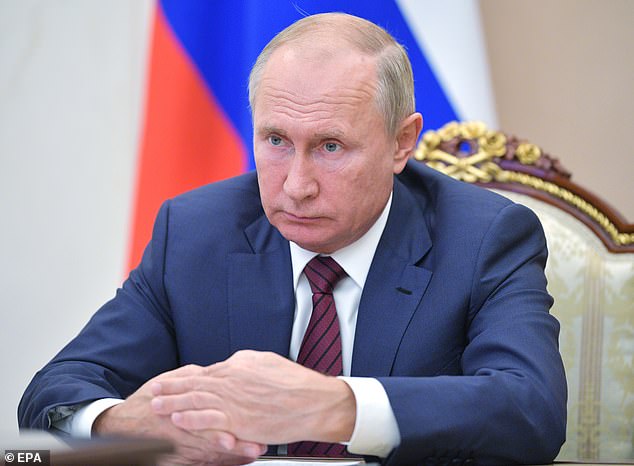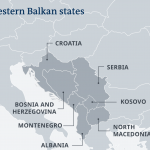The Kremlin is gearing up for Putin to release his grip on power amid constant rumors he is ill. This goes along with a tough fight by policy-makers and malfunction by government facilities and interagency regulation.
Reports on Vladimir Putin’s poor health have been breaking in the media all too often recently. On November 6, for example, The Sun, the British tab, claimed Putin would step down over long-term Parkinson’s, the symptoms of which have been visible for more than 5 years. The Daily Mail also reported the health of Russia’s President went downhill.
Having studied chronologically the footage where Russia’s president appears, there is no reason yet to argue that his physical condition is visibly critical. But the sources of this information and the channels it has been spread speak for presumably existing openings to precipitate powershift in Russia.
The Kremlin insider Valery Solovei is the source who suggested Mr. Putin was in bad health.
Solovei informed of Parkinson’s disease in his last interview to the Echo of Moscow opposition newspaper. He hinted, meanwhile, that was not the only medical problem Putin had, but refused to give details. Open sources associate Professor Valery Solovei with Russian intelligence services. His activity over the past six months indicates he was likely to voice messages to serve the interests of Russia’s military intelligence. The media from Russia’s Defense Ministry pool like citing him as well.
We are convinced that in Russia, it is impossible to disseminate information undermining Vladimir Putin’s prestige and discrediting his legitimacy or legal capacity without sanction and cover by Russia’s security and defense apparatus. The enormous control measures by the government in modern Russia are on par with the Soviet control of the people by the KGB.
Thus, the reports on Putin’s disease are most probably part of an information campaign most likely staged by pressure groups at the Kremlin. On October 12, IGTDS released a situation analysis emphasizing that hard lines dividing Russian intelligence agencies might signal Vladimir Putin’s slackening at the Kremlin.
Based on our estimates, we believe the key pressure groups at the Kremlin are not tightly-controlled by Vladimir Putin any more, thus making them more independent and urging to play their own game, toxic for landscape of power in the government. It might be implicitly related to the expectation that Vladimir Putin’s physical or mental health would go downhill, making his entourage play their own game to preserve themselves in power.
It consequently leads to a contest for greater influence and reallocation of budgetary funds. The security apparatus (siloviki) is seeking to exceed the authority and gobble up the areas that fall within the competence of other government agencies. Practically, it is evident, for example, as the GRU and the FSB / SVR are fighting hard, including for the control of foreign assets.
Russia, meanwhile, is setting the stage for Putin’s immunity after office.
Alongside with the rumors about the disease, a bill on security guarantees for the ex-president and his family after he resigns was drafted and introduced to the Russian parliament. The draft foresees he cannot be prosecuted for crimes committed before, during or following the presidency.
The bill is obviously targeting to prevent the developments under the Kyrgyz or Libyan scenario (Gaddafi’s death) – forceful reprisal against the ex-head of state.
The bill “looks too concise and politically emotional”. Taking into account that Putin is in office, the bill was clearly drafted to serve his interests and provide guarantees for his security. The fact that the bill was introduced most likely means that Moscow is making preparations for Putin to step down. It is still difficult, however, to fix the time frame for this event, although a chain of events in the form of statements and legislative initiatives suggests it might happen not in 2024, but earlier.
On October 31, the President of Russia introduced another bill to the parliament – “On the procedure for forming the Federation Council of the Federal Assembly of the Russian Federation.” The bill foresees that the ex-president of Russia, not in office anymore, will become life-long senator of the Federation Council, the highest chamber of the Russian parliament.
This bill changes the landscape the Kremlin has presented by its power transfer project. Every stage of its discussion provided for more powers by Putin to be scaled back after office – from the prime minister, then the head of the State Council, and, finally, to life-long senator. Such changes were unlikely part of a “palace coup” by Putin’s entourage. They reflect more likely a negative trend in expectations as for Putin’s health in future.
There is a good likelihood that several rival groups at the Kremlin are simultaneously preparing for the powershift amid negative expectations as for Mr. Putin’s physical or mental health. Navalny’s poisoning might be guided by a knockout of a potential candidate by one of the competing groups in the lead-up to the presidential election. The unrest in Khabarovsk might be considered in a similar vein, likely to simulate the scenario of controlled popular riots if things are moving under the scenario by one of the competing groups, altering the political landscape at the Kremlin.
Author
-

Robert Lansing Institute Director General, former DRM
View all posts
imagery analyst, Paris-based analyst in intelligence




